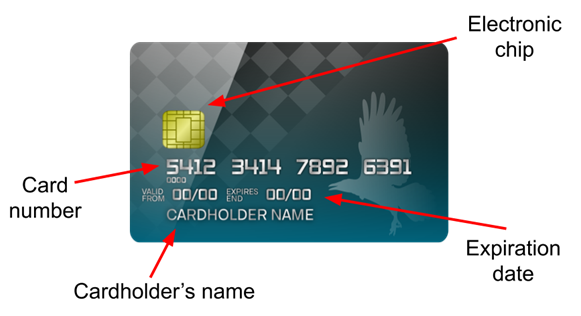In the rapidly evolving world of personal finance, debit cards have emerged as one of the most indispensable tools for managing your money effectively. Far more than just a piece of plastic, a debit card offers a plethora of benefits that empower you to navigate the financial landscape with confidence and ease. In this blog post, we’ll delve into debit cards, exploring the best options available, their numerous advantages, and how to manage your finances using these versatile instruments effectively.

The Best Debit Cards for Your Wallet
Choosing the right debit card can significantly impact your financial journey. While the ideal debit card can vary depending on individual preferences and needs, a few standouts have consistently proven their worth:
- Chase Sapphire Debit Card: Known for its rewards and benefits akin to credit cards, this debit card offers cashback on purchases, travel perks, and no foreign transaction fees.
- Discover Cashback Debit: With its remarkable cashback rewards on everyday purchases, this debit card is a favourite for those looking to earn while they spend.
- Schwab Bank High Yield Investor Checking Account: The debit card shines for its unlimited ATM fee reimbursements worldwide, making it an excellent choice for frequent travellers.
- Capital One 360 Checking: Offering competitive interest rates and no monthly fees, this debit card suits those seeking a simple banking experience.
- Ally Bank Interest Checking: Known for its high-interest rates and robust online banking tools, this debit card is perfect for those who prioritize digital banking convenience.
The Benefits of Using a Debit Card
- Financial Discipline: Unlike credit cards that allow you to spend beyond your means, debit cards only allow you to spend what you have in your account, promoting responsible spending.
- No Debt Accumulation: With a debit card, you won’t accrue debt or interest charges as you would with a credit card, ensuring your financial health remains intact.
- Budgeting Made Easy: Debit cards facilitate effortless budgeting by offering real-time transaction tracking and instant updates on your available balance.
- Security: Debit cards offer enhanced security through features like PIN protection, two-factor authentication, and fraud monitoring, providing peace of mind in an increasingly digital world.
- Widely Accepted: Debit cards are accepted globally, making them an ideal companion for local and international transactions.
Managing Finances with Debit Cards
- Create a Budget: Leverage your debit card’s transaction history to categorize and analyze your spending patterns. This insight will help you create a realistic budget for your financial goals.
- Track Transactions Regularly: Monitor your transactions frequently through online banking or mobile apps to ensure accuracy and detect any unauthorized activity promptly.
- Set Up Alerts: Enable transaction alerts to receive notifications for every debit card transaction. This feature ensures you’re aware of your spending in real time.
- Emergency Fund: Utilize your debit card for quick access to emergency funds without worrying about accruing debt, ensuring you’re prepared for unforeseen financial challenges.
- Savings Goals: Some debit cards offer features that round up your transactions to the nearest dollar and transfer the change to a savings account, making it effortless to save money.
How to apply for a debit card in India?
Applying for a debit card in India is a relatively straightforward process. Here’s a step-by-step guide to help you through the application process:
1. Choose a Bank: Select one that aligns with your financial needs and preferences. Consider fees, benefits, ATM network, and online banking capabilities.
2. Open a Bank Account: If you’re not an existing account holder, you’ll need to open a savings or current account with the bank. Visit the bank’s branch or website to initiate the account opening process.
3. Fill Out Application Form: You’ll need to fill out an application form for the debit card. This form is typically available at the bank branch or accessed online through the bank’s website.
4. Choose the Type of Debit Card: Banks usually offer different debit cards with varying features and benefits. Select the one that best suits your needs, such as a primary debit card, a rewards card, or a premium card with added perks.
5. Submit Documents: Banks require specific identity and address verification documents. Commonly accepted papers include:
- Aadhaar card
- Passport
- Voter ID
- Driving license
- PAN card
- Utility bills or rental agreement (for address proof)
6. Provide Photographs: You might need to submit passport-sized photographs along with your application. These photographs are often affixed to your debit card for identification purposes.
7. Signature Verification: Banks may require you to sign a verification document to match your signature with the one you provide on the application form.
8. Initial Deposit: Some banks may ask for an initial deposit to activate your account and issue a debit card. Make sure you’re aware of the minimum balance requirement.
9. Choose PIN: Once your application is processed and approved, your debit card will receive a Personal Identification Number (PIN). This PIN is used for transactions at ATMs and Point of Sale (POS) terminals.
10. Collect or Receive Debit Card: After the bank processes your application and verifies your documents, you’ll either receive your debit card at the bank branch or mail it to your registered address. The time can vary depending on the bank and the card type.
11. Activate the Debit Card: Before using your debit card, certain banks may require you to activate it. It can be accomplished by making your first ATM transaction or using online banking.
12. Secure Your Debit Card: Upon receiving your debit card, sign the back immediately. Store your card securely, and never share your PIN or card details with anyone.
Remember that the application process can vary slightly from bank to bank, so it’s a good idea to visit the bank’s website or contact their customer service for specific instructions and requirements. Always read and understand the terms and conditions associated with the debit card you’re applying for to ensure you’re making an informed decision.
Conclusion
In an era where financial empowerment is paramount, debit cards have risen to the occasion, offering myriad benefits that streamline money management. From promoting responsible spending to enabling effortless budgeting, the versatility of debit cards makes them an indispensable tool for individuals seeking to take control of their finances. By selecting the right debit card and implementing effective management strategies, you can unlock the true potential of these financial companions and pave the way towards a secure and prosperous future.
